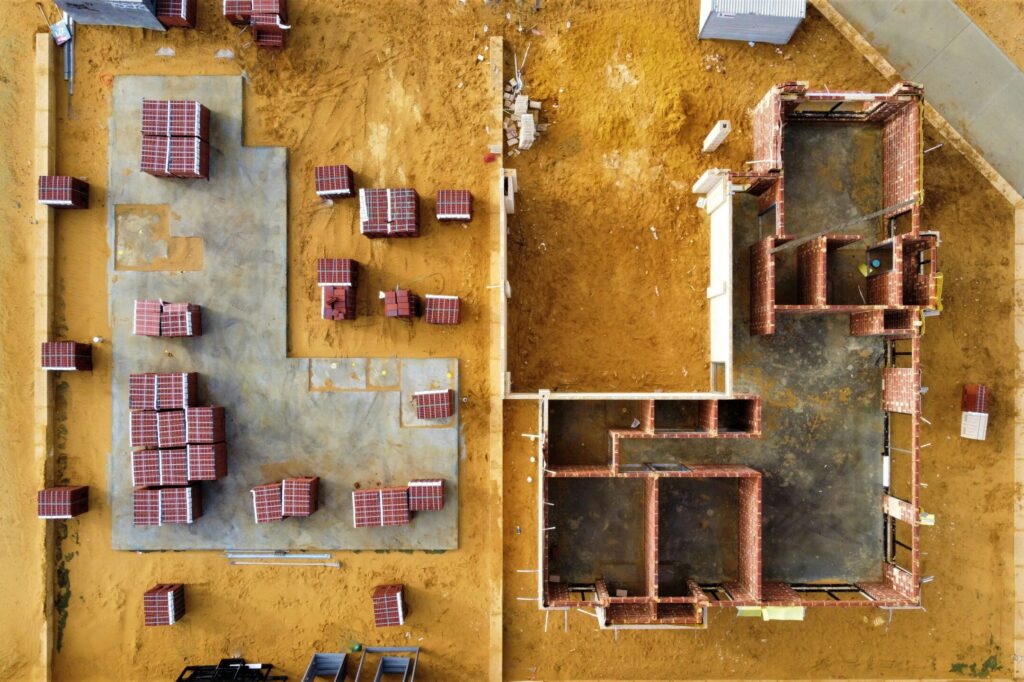
Artificial intelligence has made a major breakthrough into mainstream workplaces in the last few years. Yet, even now it is used most broadly and effectively in jobs that were created and pioneered following the inception of technology.
Construction – and more specifically housebuilding – as an industry, pre-dates technology by some time. Therefore, a firmly established, functional infrastructure already underlies the long and complex process of converting a piece of land into a new-build home development.
The housebuilding industry typically has a reputation for being a traditional sector in terms of its operations. It is known for being rooted in the physically demanding, labour-intensive processes which comprise the foundations of construction.
With these building processes constantly ongoing and therefore minimal room for housebuilders to focus purely on digitalising operations, IT innovations must be tested, proven and implemented methodically throughout the sector as a non-primary focal point.
This is the very nature of technological change in corporations where operational processes are not founded on technology.
A key process for these corporations to focus on when attempting to initiate technological shifts is a thorough evaluation of potential ROIs. When innovation can be proven to benefit the company without detrimentally affecting ongoing operations is when it should be employed.
We are in the earliest stages of this transition for AI. Currently, early innovations in housebuilding have seen AI integrated into automated administrative tasks. At this level, human input is largely removed from tasks like invoicing and instead replaced by this smart technology.
The benefit and tangible ROI for these early implementations is the withdrawn necessity of human input, meaning employee time can be reallocated to other, productive processes.
While this exemplifies the early stage of AI in housebuilding, it also highlights the potential for innovation and implementation, with a limitless scope for improvement hanging on the horizon.
Using AI to enhance customer experience
With AI in its infancy within the housebuilding sector, placing enhanced customer service at the forefront of future advancements seems a suggestable route for progression.
Existing customer service processes will not be majorly disrupted while new infrastructure is developed in the background, making this kind of AI integration easier to pass through the approval process of large corporations.
One advancement in housebuilding which could be utilised to transform customer experience is a simple, bespoke chatbot.
With housebuilding companies operating on such a scale, the wealth of data on every stage of the building and selling process would serve as excellent information banks to feed to a machine learning software.
An automated chat bot trained on this excess of supply and demand data would make a great avenue for a housebuilder’s client – prospective homeowners – to access tailored solutions to their queries.
Common, recurring enquiries from customers would not take up finite labouring hours which can then be reallocated within the business. Customers who face pressing issues with anything that might come up can access a constantly available, 24/7 virtual assistant to offer professional, tailored help.
Developing an automated function, that works similar to Microsoft Copilot, to assist with the sales process would also be a beneficial addition to this support chatbot.
Generating leads and converting these into on-site appointments is the ultimate goal for housebuilders, so adopting AI to automate and assist with this process could be advantageous.
Using AI to drive efficient, data-driven decision making
Along with customer data, housebuilders hold vast amounts of information on supply chains, the homes they have previously developed and also status reports on these thousands of homes. Using AI to analyse this data would be an effective way to boost efficiency.
Identifying patterns that arise in data on previous work processes could be used to quickly pinpoint both recurring failures and uninhibited successes. From this, the necessary amendments to the construction process can be made, checking and fixing areas where repeated errors occur while reinforcing failure-free operational aspects.
Automating these kind of data analytic processes via AI could streamline the process of designing homes for future projects. Delays and difficulties could eventually be identified and eliminated almost automatically, working toward the ultimate systemisation of designing and executing new builds.
This aligns with the ultimate goal of prospective digital integration in housebuilding: to decrease build time and reduce outgoing costs, without compromising the quality of the builds.
From bricklaying to completion, depending on house type, there are around 20 different stages of housebuilding. The manual labour/resources required during these stages are sourced from just as many different trades, involving employees, contractors and suppliers from a range of different industries.
For housebuilders, these processes and parties are typically organised manually. This is another administrative task that could be overtaken by AI to both reallocate human working hours to other productive tasks and also to optimise the organisational scheduling of the parties involved.
From a timetabling point of view, a misalignment between material delivery and trades peoples’ on-site activity can cause significant issues, including theft, damage and delays. Utilising AI to create an open landscape between housebuilders, contractors, suppliers and labourers opens up the pathway to ultimate process optimisation.
Having a unified timetabling system would allow a streamlined forward scheduling process to minimise the time that materials are left unattended on site. It would also avoid unplanned labour shortages, which can cause long-standing delays and issues in the development process.
This form of system would ensure that trade labourers are never overworked nor under-equipped for works taking place.
It is in this analysis of data and the subsequent formulation of automatic, accurate solutions that the power of AI lies within housebuilding.
The ideal outcome for AI in housebuilding
At the rate that technology is progressing, there is every possibility that bricklayers could eventually be replaced with their robotic counterparts and the actual construction process is also taken over by AI. However, this is of course not likely to play out on a mass scale in the next few years, and most likely not even in our lifetime!
The skill of each individual tradesperson required to piece together a new-build home is not close to being replicated in AI research, so we don’t need to think about this just yet.
The realistic, ideal outcome for housebuilding is the gradual implementation of AI, starting immediately, to reduce build time without compromising quality. This change should be built on the foundations of improved customer service through data-driven decision making.
AI should, holistically, be considered a good thing. It requires legitimate and responsible use for the greater advancement of society, and this will likely require regulation and policing of some sort.
Within construction, a shift needs to occur where AI and IT in general are no longer considered a side focus, but instead considered for the potential that they carry for the housebuilding sector.
Operating on the scale that housebuilders work to means, of course, that it is difficult to implement these kinds of changes when tech is not at the forefront of these businesses. As a means of initiating these changes, though, effective ROI evaluation can elicit major shifts at a senior level.
In the immediate future, a primary focus on enhanced customer service is the most evident way forward. Prospective buyers are at the heart of a thriving housebuilding company, so leveraging new technologies to support them – and those within customer service positions – in any way we can is definitely a priority.
As the potential ROI held by AI is becoming clearer and harder to ignore for housebuilders, the call for innovation beckons.

Jason Law
As Group IT Director at Avant Homes, Jason Law is responsible for leading a team tasked with further enhancing Avant Homes’ operational capabilities through the implementation of new technology, systems and processes.


